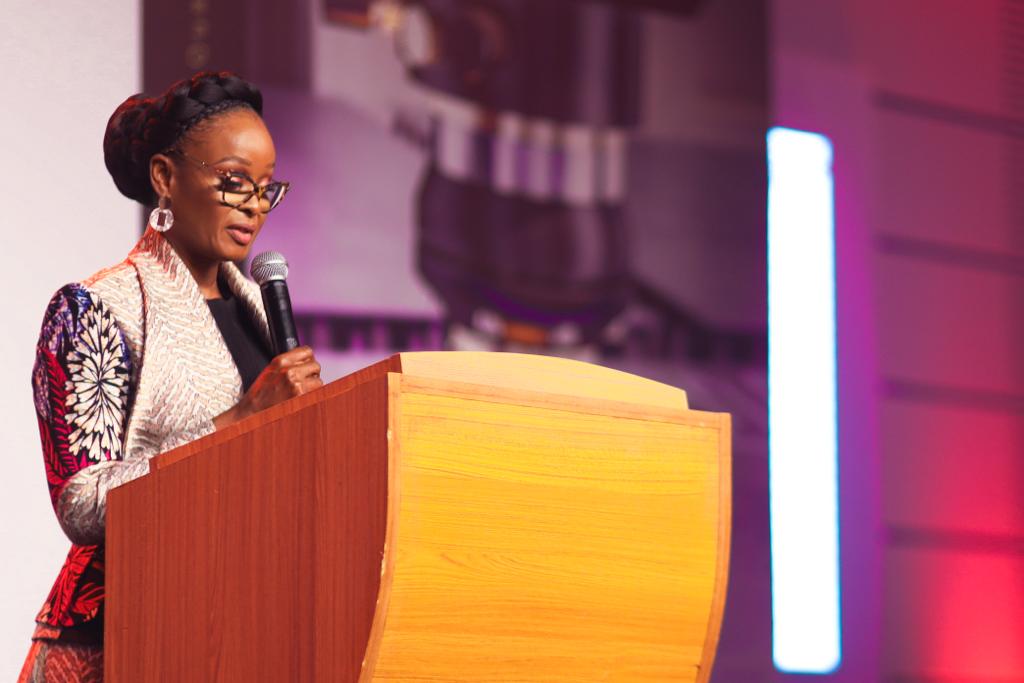By Morkporkpor Anku
Accra, Sept. 9, GNA – The Design and Technology Institute (DTI) has partnered with Mana Mobility to build and deliver the first Made-in-Ghana Electric Vehicles by the end of January 2023.
The collaboration has come up with the 3D-drawings and prototypes for the first Made-in-Ghana Electric Vehicle.
Ms Constance Swaniker, the Founder and Chief Executive Officer of DTI, announced this at the third National Precision Quality Conference in Accra.
The Conference was on the theme: “The Precision Quality Policy Framework: A Building Block for System Change and Industrial Transformation. ”
The Annual Conference, an initiative of DTI, in partnership with the Mastercard Foundation, aims to highlight the critical role Precision Quality plays in providing the skills and mindset needed for the production and delivery of high-quality goods and services.
The conference forms part of a three-year “Transforming youth TVET livelihoods for sustainable jobs” partnership between DTI and the Mastercard Foundation, as part of the Foundation’s Young Africa Works strategy in Ghana. The programme aims to create 40,000 direct and indirect work opportunities for young people in the country.
She said Ghana now had policies and laws in place that would use Precision Quality to transform with the support from the Ministries of Employment and Labour Relations, Trade & Industry and Education.

The DTI Founder said the National Development Planning Commission (NDPC) with support from DTI and working with the Commission for TVET, the Ghana Standards Authority and stakeholders in both the public and private sectors, have published Ghana’s first ever Framework Document for Precision Quality.
“In addition, in April 2022, the Cabinet approved Ghana’s first ever National Quality Policy with a specific section on Precision Quality, then in June 2022, the new Ghana Standards Authority Act, Act 1078 was approved by Parliament and given Presidential Assent,” she added.
Madam Swaniker said stakeholders now had very powerful tools to drive Precision Quality to create jobs and formalise all sectors of the economy.
She said in the past 24 months, DTI had trained three Technical Universities and engaged one traditional university in Precision Quality.
They have also trained 4,162 master crafts persons and 898 SMEs in Precision Quality.
Mr Ignatius Baffour Awuah, the Minister of Employment and Labour Relations, in a speech read on his behalf by Mr Bright Wireko Brobbey, the Deputy Minister, said the informal economy played a key role in supporting livelihood in Ghana and some African Countries at large.
He said in Africa, about 95 per cent of youth work in the informal sector, whilst in Ghana, over 70 per cent of employees work in an informal sector.
He said Precision Quality enhances the integration of young people and equips them to meet industrial standards into the workplace in ensuring quality service delivery that met the client’s requirement.
The Minister said the informal sector act as a safety net for the formal economy, by allowing the unemployed and unemployable to find work or start their businesses, boosting income and alleviating poverty.
He said by dint of hard work, just a year ago and exactly two years after the first conference, a Precision Quality Framework has been developed led by NDPC with support from other relevant stakeholders. approval was given by the Cabinet on the National Quality Policy.
The President assented, and Parliament also approved the Ghana Standards Authority Act, Act 1078 to provide legislative backing for standardization and certification including certification of Precision Quality products, processes, and services.
“We are in the digital world, however, we ought to think holistically to change the trajectory and adopt ways to build blocks for systems which would transform our local industries. The informal sector produces and provides sources of livelihood and economic opportunities unavailable in the formal sector,” he added.
The Minister said there were several reasons why that call for the need to build blocs for systems changes to transform our industries.
He commended the leadership of DTI on their achievements over these few periods, assuring the government’s commitment to continue partnering with the informal sector to develop and help build a stronger and resourced nation.
GNA